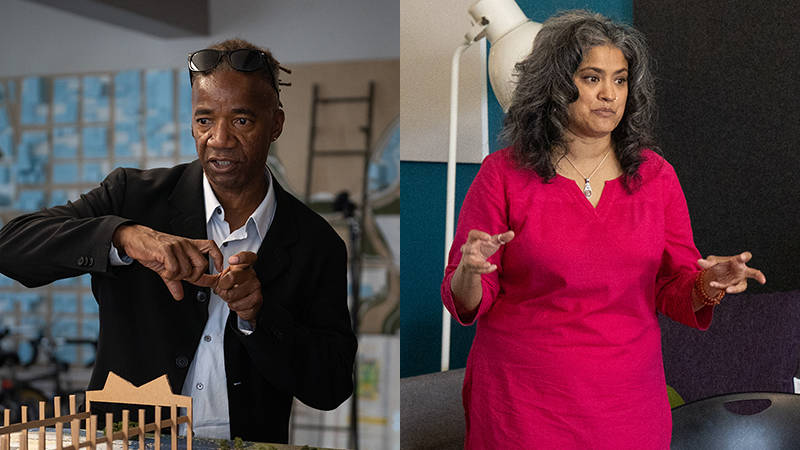The John D. and Catherine T. MacArthur Foundation launched the grant program in 1981 to recognize excellence in fields as diverse as biochemistry and performance art.
baliga, who's 48, works with people who have been arrested for allegedly committing crimes, particularly young people of color, to break cycles of violence. As the director of Restorative Justice Project, an initiative of the national innovation and research center Impact Justice, baliga advocates for restorative justice approaches—as opposed to standard legal and punitive interventions—for youth in cities across the United States.
"I'm excited to use this incredible platform to help us not just imagine, but make real, a world in which families and communities heal conflict and violence without reliance on the criminal legal system," baliga wrote in an email.
"sujatha has been a leading voice in leading us out of incarceration and punishment as the only way to address harm in this country," said Impact Justice president Alex Busansky via email. "The first time I heard sujatha talk about restorative justice diversion, I knew she articulated a vision for how to deliver a meaningful alternative to our current system of mass incarceration of black and brown people."
The 61-year-old Hood is a professor of landscape architecture at the University of California, Berkeley and the creative director of the urban design firm Hood Design Studio.
His projects include the gardens at San Francisco's de Young Museum and Lafayette Square Park in Oakland. He was also involved in the restoration of San Francisco’s Bayview Opera House, the city’s oldest theater and a registered historical landmark. Over his long career, Hood has transformed often-blighted or unremarkable urban areas—like vacant parking lots and freeway underpasses—into lively, highly-trafficked public spaces.
"Walter’s innovative work reimagines urban environments that honor their layered histories and enriches the social fabric of their communities," said Renee Chow, acting dean of UC Berkeley’s College of Environmental Design via email. "His work and his teaching reflect the best of sustainably responsible environmental design."
"Genius" grant awardees each get a $625,000 stipend with no strings attached.
baliga said she plans to use some of the grant money to work on writing projects and travel to visit her mentors. The attorney added, "I'll also be paying off my student debt."
"It’s kind of a daunting feeling," Hood said of winning the prize. "I have no idea yet what I'll do with the money. It’ll take some time to sink in."

